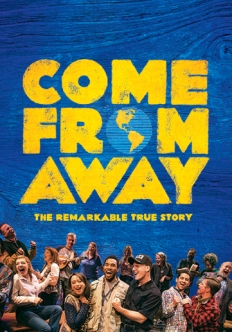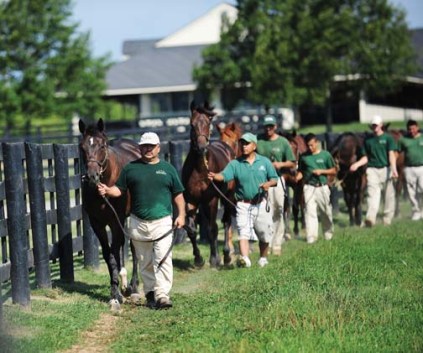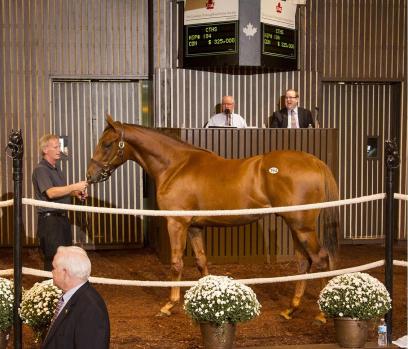Cone of Shame
 So much to tell you, gentle readers. So little time and energy available to do so. So, short version. Possibly to be expanded on at some future (relatively soon) date.
So much to tell you, gentle readers. So little time and energy available to do so. So, short version. Possibly to be expanded on at some future (relatively soon) date.
I’m employed.
I know, right? Like, real employment. The kind with a T4 (that’s the standard tax form reporting your yearly income, non-Canuck visitors). Can’t remember the last time I had a T4.
After eight years (ish … if I’m honest, it was probably more) of marginal employment of various kinds, strangely and suddenly I’m in demand. A bit, anyway.
What I’m doing is teaching, at the college level. I’ve been given the title of professor (which no doubt my father the Ph.D. finds insulting, but just go with it, Dad, cuz tenure isn’t a thing anymore). It’s a two-year diploma program run under the auspices of the great and terrible machine that is the University of Guelph. Though it’s actually in tiny Clinton, which teeters on the edge of the Ontario map somewhere near the Lake Huron shore. We’re a subset of the subset of Ridgetown College (the old Ontario Agricultural College, down relatively close to my ancestral stomping grounds of Essex County), which is itself a subset of the University. Not at all confusing. Nuh-uh.
Anyway, it’s weird and wonderful to realize that I know when I’m going to get paid. And also to realize that, as a result of that, I can for the first time in years indulge myself in one or two tiny things that I’ve been putting off buying pretty much forever. Nothing big — just stuff like a pot of Clinique moisturizer for my increasingly crinkly face. A new external hard drive (two terrabytes and it’s smaller than my phone … whoa). A couple of CDs that have been on my Amazon wish list (it’s a live link, feel free to indulge me) since Stephen Harper was in office. A second Kiva loan, and a donation to a friend who did the Toronto Walk to Conquer Cancer. Gawd it feels decadent. But given that it’s still gonna be six or seven decades (conservatively) before I dig myself out financially, I am not exactly getting unhinged. It’s just nice to have slightly less complex knots coiling in my digestive tract whenever I click on my bank balance.
also to realize that, as a result of that, I can for the first time in years indulge myself in one or two tiny things that I’ve been putting off buying pretty much forever. Nothing big — just stuff like a pot of Clinique moisturizer for my increasingly crinkly face. A new external hard drive (two terrabytes and it’s smaller than my phone … whoa). A couple of CDs that have been on my Amazon wish list (it’s a live link, feel free to indulge me) since Stephen Harper was in office. A second Kiva loan, and a donation to a friend who did the Toronto Walk to Conquer Cancer. Gawd it feels decadent. But given that it’s still gonna be six or seven decades (conservatively) before I dig myself out financially, I am not exactly getting unhinged. It’s just nice to have slightly less complex knots coiling in my digestive tract whenever I click on my bank balance.
So this post isn’t really about that. Instead, it’s about the other job opportunity that came up almost at the same time that I was interviewing for the U of Guelph gig.
The posting was for a gubbermint job — federal, thankfully, rather than provincial. (Given that Ontario has inexplicably elected a noxious, tantruming Trump wannabe as Premier, ain’t nobody feeling terribly secure in provincial positions these days.) A small equine research farm affiliated with the Canadian Pari-Mutuel Agency was looking for a ‘farm operations manager’. Could I look after 12 retired Standardbreds who occasionally have to give a blood or a urine sample, and could I do it for $30-$35 an hour? Why, yes, I believe I could manage that, especially given my fabulous experience as a Test Inspector (I Stare At Dicks). The job didn’t even require competence in French (unusual for any government position). I mean, sign me the fuck up, right?
Now, I rarely expect to actually get called in for interviews anymore. Suffice to say I have learned to keep my expectations subterranean. But of course no sooner had I accepted the Guelph position, than I got contacted about the farm manager position, too.
Except that the invitation to interview read rather more like a summons to a parole hearing. I mean, I expect federal communications to be a smidge on the officious side, but fuck me. I thought at first I must be misinterpreting it, but I sent a copy to a couple of friends and they both thought the tone was a bit NQR too. So, not just me then.
Here it is, verbatim:
Selection process number: AGR18J-016947-000353
Position title: Farm Operations Manager
Group, sub-group and level: GL-MAN-10
Dear Karen Briggs:
I am pleased to inform you that your application has been assessed and that you are invited to an interview on:
Date: July xx, 2018
Interview time: TBA upon confirmation
Location: Jerseyville, Ontario
Language of Assessment: English
*It is your responsibility to confirm your availability. You must reply to this email by July xx, 2018 to confirm participation. All travel expenses will be your responsibility.
The interview is designed to assess the following merit criteria:
- Ability to supervise
- Concern for safety
- Initiative
- Interactive communication
- Planning and organizing
- Problem solving
- Team Leadership
- Written communication/Attention to detail
Knowledge of administrative procedures and human resources practices related to the operation of a horse farm.
Knowledge of the general operation and maintenance of farm equipment
Knowledge of the mandate of the Canadian Pari-Mutuel Agency’s Equine Drug Control Program.
Please bring the following information:
1. Names and telephone numbers of 3 references, indicating what type of reference, i.e. Previous Supervisors, Co-workers, Clients or others) as reference checks will be part of the assessment process.
2. The original of the Personnel Screening, Consent and Authorization Form completed (Level required: Reliability Status) (form attached).
3. Proof of Education and Certification.
4. Proof of Canadian citizenship.
5. Your valid Driver’s Licence.
6. Others (First Aid Certification, if applicable).
 Failure to attend without advance notification and sufficient justification will constitute withdrawal from this appointment process. Acceptable reasons include:
Failure to attend without advance notification and sufficient justification will constitute withdrawal from this appointment process. Acceptable reasons include:
– Medical reasons with doctor’s certificate;
– Death in the immediate family;
– Confirmation of pre-approved travel plans;
– Religious reasons.
Should you require accommodation during the assessment, you are strongly encouraged to contact Joyce Adam atJxxx.xxxx@agr.gc.ca (preferred) or by phone at 613-xxx-xxxx as soon as possible.
Should any situations arise on July xx affecting your ability to attend the interview, please inform Cxxxxx.Cxxxxx@canada.ca or phone 905-xxx-xxxx.
Joyce Adam
Canadian Pari-Mutuel Agency / Government of Canada
Agence canadienne du pari mutuel / Gouvernement du Canada
I was a bit put off, frankly. Where were the warm fuzzies? But I figured maybe that was just the sort of passive-aggressive language that multiple layers of bureaucracy generate, so I decided not to take it personally. It was probably spit out by an automatic interview-invite-generator bot. Not having had a death in the family, I went to the interview, basically for shits and giggles since I hadn’t officially started my job with the U of Guelph yet, and because I figured I shouldn’t cut off my nose to spite my face.
The actual interview was also a little strange, though not as off-putting as the language of my engraved invitation. There were two real women who asked me questions, and mercifully refrained from trotting out those cliché HR phrases (“Where do you see yourself in five years? What do you consider your greatest flaw? Tell us about a  situation where your boss royally fucked you over and how you handled that?”), for which I was grateful. I got the nickel tour of the farm — which incidentally is very clandestine, tucked away in a suburb the other side of Hamilton with no signs or indications of any kind that it is a government facility — and then I went back into the city and took myself to see Come From Away (since I was dressed for an interview and all). Go see it. It’s good.
situation where your boss royally fucked you over and how you handled that?”), for which I was grateful. I got the nickel tour of the farm — which incidentally is very clandestine, tucked away in a suburb the other side of Hamilton with no signs or indications of any kind that it is a government facility — and then I went back into the city and took myself to see Come From Away (since I was dressed for an interview and all). Go see it. It’s good.
They’d told me they weren’t going to make any decisions till mid-October, which I figured was par for the course for the Feds. No worries. I had a curriculum to pull out of my ass together and really didn’t give it much more thought. Until I got the following in my inbox today:
18-AGR-ON-EA-CM-35 (GL-MAN-10) Farm Operations Manager
| Inbox | x |
|
6:06 PM (3 hours ago) | |||
|
||||
Subject
Selection process number: 18-AGR-ON-EA-CM-35
Position title: Farm Operations Manager
Group, sub-group and level: GL-MAN-10
Dear Ms. Briggs,
Following your interview, we regret to inform you that your application will not be given further consideration as you do not meet the following requirement:
- Ability to Supervise
- Attention to Detail
- Interactive Communication
- Written Communication
- Planning and Organizing
- Problem Solving
- Team Leadership
Should you require additional information, please do not hesitate to contact me at carol.ryckenboerbarsalou@canada.ca.
Yours sincerely,
Carol Ryckenboer Barsalou
Staffing Operations
Corporate Management Branch
Agriculture and Agri-Food Canada / Government of Canada
E-mail Address / Tel: 204-259-5564 / TTY: 613-773-2600
Opérations de dotation
Direction générale de la gestion intégrée
Agriculture et Agroalimentaire Canada / Gouvernement du Canada
Adresse de courriel / Tél. : 204-259-5564 / ATS : 613-773-2600
…
[Message clipped] 
Well, I could have gotten insulted. My squeeze certainly was — incensed, actually — when I read it out loud to him. But honestly, I’m pretty committed to my new teaching responsibilities (read: I am treading water as fast and creatively as I can), so Ag Canada and the CPMA are not breaking my wee fragile heart here. I suspect, actually, that someone fired this form letter off without remembering to further personalize it beyond my name at the top, and that they didn’t actually intend to malign basically every job skill I’ve got.
But I did figure it merited some sort of response. And since I enjoy a nice bit of fuckery, when aimed towards those who deserve it, this is what I sent:
| 9:37 PM (0 minutes ago) | |||
|
|||
Dear Ms. Ryckenboer Barsalou (and, presumably, Ms. Harris),
Thank you for your correspondence. That is QUITE a list of personal failings, and I appreciate you bringing them to my attention. I’m particularly embarrassed by my inadequate written communication skills: six published books and some 5000 published magazine and newspaper articles are, really, too humiliating a total to mention on a curriculum vitae, and obviously indicate that the demands of the position would have had me floundering. Please accept my gratitude for the narrow escape.
All is not lost, however. I recently accepted a position as a college professor with the University of Guelph’s diploma program in Equine Care and Management, where I’m confident my multiple deficiencies in communication and leadership will go largely unnoticed.
All the best to your successful candidate.
Cordially,
Karen Briggs.
 I can pretty much guarantee you I will never be considered for another government job.
I can pretty much guarantee you I will never be considered for another government job.


 We had it easy here in Ontario last winter: no significant amount of snowfall until after Christmas, and temperatures that dropped below -15 C only for a couple of days, really. We didn’t even have what I dread the most, which is freezing rain (one of the few weather scenarios from which I rescue my True Canadian-bred beasties from the nasty, foul outdoors). And we had quite a few scattered thaws throughout the season to beat back the accumulated snow to a (mostly) manageable level.
We had it easy here in Ontario last winter: no significant amount of snowfall until after Christmas, and temperatures that dropped below -15 C only for a couple of days, really. We didn’t even have what I dread the most, which is freezing rain (one of the few weather scenarios from which I rescue my True Canadian-bred beasties from the nasty, foul outdoors). And we had quite a few scattered thaws throughout the season to beat back the accumulated snow to a (mostly) manageable level.
 And then there was the Night of the Freezing Rain, which, see above. That meant bedding down stalls, running hoses all over hell’s half-acre in order to fill water buckets (because all the convenient ones are uncooperatively seized by ice) and angsting over whether I had enough small bales of hay to see them through the night and following day, being as those bales are in short supply this year. I did get everyone (headcount is currently seven, btw) cosily inside for the night, and the freezing rain turned out to me mostly the non-freezing kind, and thus not full-scale Ice Storm (though trust me, we’ve had those too), but naturally everything seized up again — gate fastenings, every single fucking leadshank snap and halter snap on the property, my windshield wipers, my truck’s door locks, the automatic windows, the lock on my front door — when the temps dropped again 24 hours later. Plus, my horses don’t deal especially well with incarceration, and were absolutely psycho to turn out again when I decided it was safe to do so. These are the days when you think wistfully about how super-awfully nice it would be to have a little help around here…
And then there was the Night of the Freezing Rain, which, see above. That meant bedding down stalls, running hoses all over hell’s half-acre in order to fill water buckets (because all the convenient ones are uncooperatively seized by ice) and angsting over whether I had enough small bales of hay to see them through the night and following day, being as those bales are in short supply this year. I did get everyone (headcount is currently seven, btw) cosily inside for the night, and the freezing rain turned out to me mostly the non-freezing kind, and thus not full-scale Ice Storm (though trust me, we’ve had those too), but naturally everything seized up again — gate fastenings, every single fucking leadshank snap and halter snap on the property, my windshield wipers, my truck’s door locks, the automatic windows, the lock on my front door — when the temps dropped again 24 hours later. Plus, my horses don’t deal especially well with incarceration, and were absolutely psycho to turn out again when I decided it was safe to do so. These are the days when you think wistfully about how super-awfully nice it would be to have a little help around here…

















